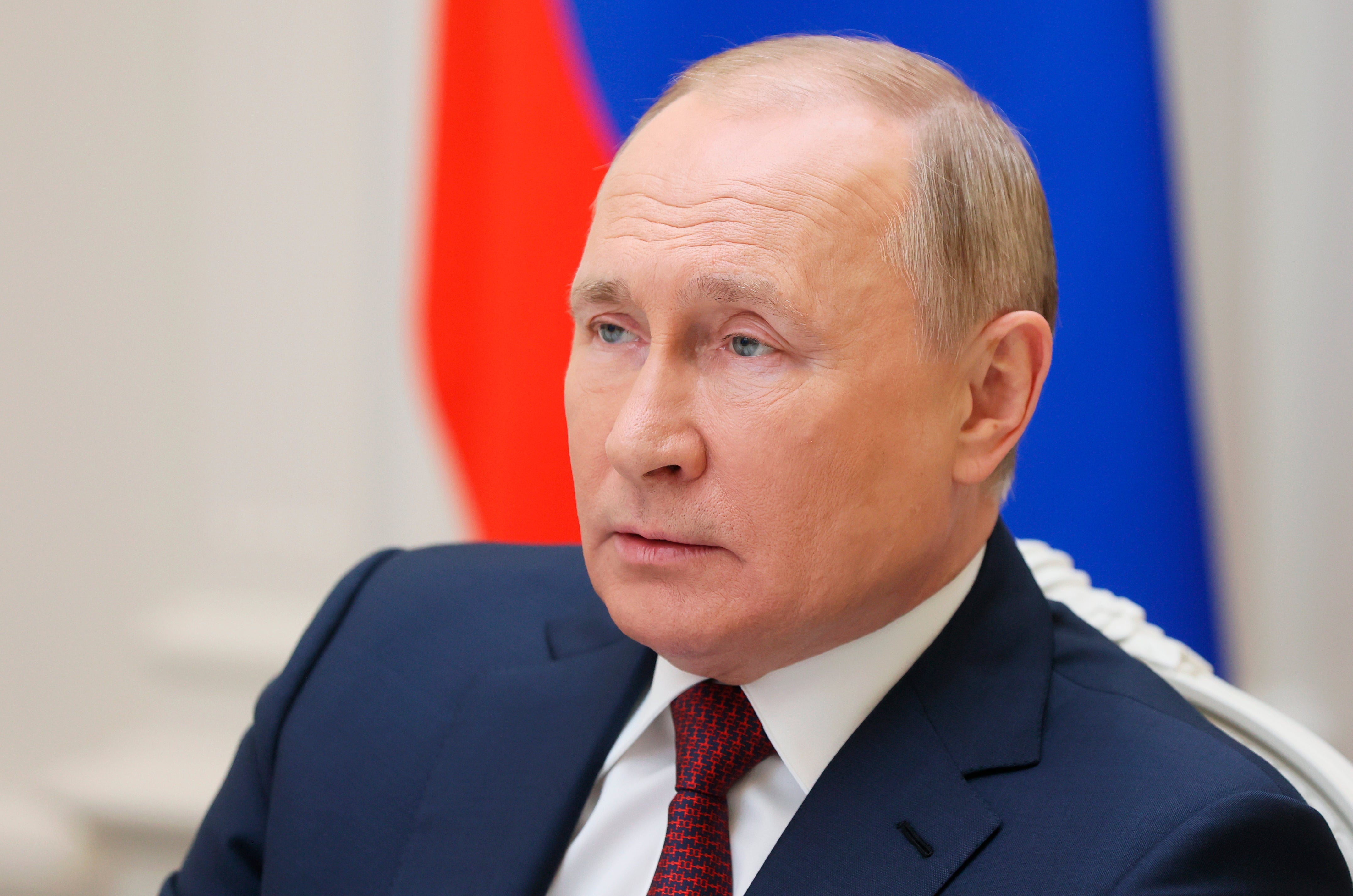Putin warns West: Moscow has 'red line' about Ukraine, NATO
Russian President Vladimir Putin has sternly warned NATO against deploying its troops and weapons to Ukraine, saying it represents a red line for Russia and would trigger a strong response

Your support helps us to tell the story
From reproductive rights to climate change to Big Tech, The Independent is on the ground when the story is developing. Whether it's investigating the financials of Elon Musk's pro-Trump PAC or producing our latest documentary, 'The A Word', which shines a light on the American women fighting for reproductive rights, we know how important it is to parse out the facts from the messaging.
At such a critical moment in US history, we need reporters on the ground. Your donation allows us to keep sending journalists to speak to both sides of the story.
The Independent is trusted by Americans across the entire political spectrum. And unlike many other quality news outlets, we choose not to lock Americans out of our reporting and analysis with paywalls. We believe quality journalism should be available to everyone, paid for by those who can afford it.
Your support makes all the difference.Russian President Vladimir Putin on Tuesday sternly warned NATO against deploying its troops and weapons to Ukraine saying it represents a red line for Russia and would trigger a strong response.
Commenting on Western concerns about Russia's alleged intention to invade Ukraine, he said that Moscow is equally worried about NATO drills near its borders.
Speaking to participants of an online investment forum. the Russian president said that NATO's eastward expansion has threatened Moscow's core security interests. He expressed concern that NATO could eventually use the Ukrainian territory to deploy missiles capable of reaching Russia's command centers in just five minutes.
“The emergence of such threats represents a ‘red line’ for us,” Putin said. “I hope that common sense and responsibility for their own countries and the global community will eventually prevail.”
He added that Moscow has been forced to counter the growing threats by developing new hypersonic weapons.
“What should we do?” Putin said. “We would need to develop something similar to target those who threaten us. And we can do that even now.”
He said a new hypersonic missile that is set to enter service with the Russian navy early next year would be capable of reaching targets in comparable time.
“It would also need just five minutes to reach those who issue orders,” Putin said.
The Zircon hypersonic cruise missile, capable of flying at nine times the speed of sound to a range of 1,000 kilometers (620 miles), has undergone a series of tests, most recently Monday.
Ukrainian and Western officials have expressed worries this month that a Russian military buildup near Ukraine could signal plans by Moscow to invade its ex-Soviet neighbor. NATO foreign ministers warned Russia on Tuesday that any attempt to further destabilize Ukraine would be a costly mistake.
The Kremlin has insisted it has no such intention and has accused Ukraine and its Western backers of making the claims to cover up their own allegedly aggressive designs.
Russia annexed Ukraine’s Crimean Peninsula in 2014 after the country’s Kremlin-friendly president was driven from power by mass protests and also threw its weight behind a separatist insurgency that broke out in Ukraine’s east.
Earlier this year, a spike in cease-fire violations in the east and a Russian troop concentration near Ukraine fueled war fears, but tensions abated when Moscow pulled back the bulk of its forces after maneuvers in April.
He argued that to avoid tensions, Russia and the West should negotiate agreements that would take the parties’ security interests into account.
The Russian leader noted that Russia has been strongly worried about NATO's drills near its borders, pointing at a recent exercise that involved U.S. strategic bombers.
“Strategic bombers, which carry precision weapons and are capable of carrying nuclear weapons, were flying as close as 20 kilometers (12 miles) to our border,” he said. “That represents a threat for us.”